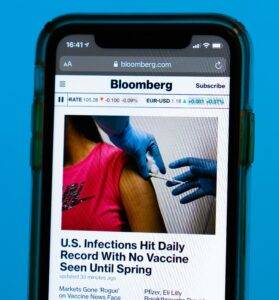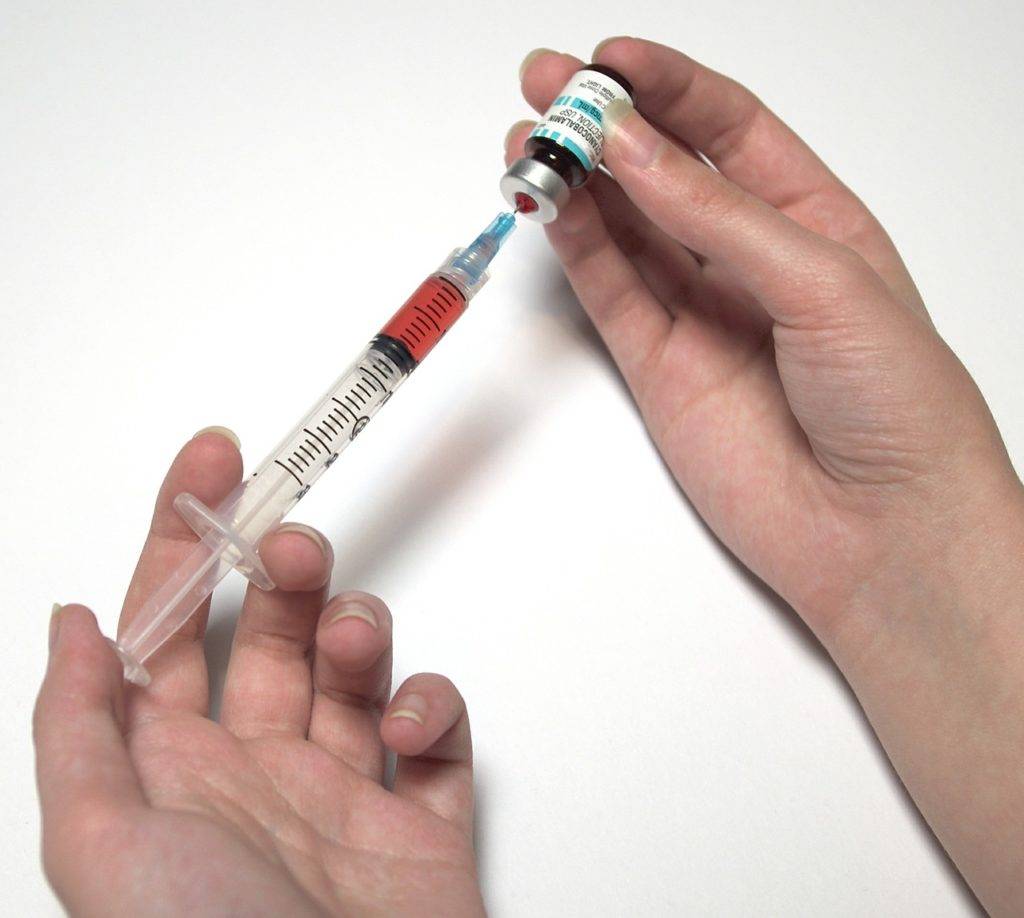Immunizations are one of the most effective ways to protect ourselves and our communities from various diseases. By getting vaccinated on time, we can prevent serious illnesses, reduce the spread of infections, and even eliminate certain diseases.
This blog post will explore the many benefits of timely immunizations and why staying on schedule with vaccinations is essential.
Why Timely Immunizations Matter
Timely immunizations play a crucial role in maintaining public health. Vaccines stimulate the immune system to recognize and fight specific pathogens, such as viruses or bacteria. When vaccinations are administered on schedule, they offer the best protection against diseases. Here are some key reasons why timely immunizations matter:
1. Protecting Individuals from Serious Diseases
Vaccines are designed to prevent serious and potentially life-threatening diseases. Individuals avoid illnesses such as measles, mumps, rubella, polio, and whooping cough by receiving timely immunizations. These diseases have severe complications, especially in young children and older adults.
Timely vaccinations ensure that individuals are protected when they’re most vulnerable.
2. Preventing Disease Outbreaks
When a significant portion of the population is vaccinated, it creates herd immunity. Herd immunity occurs when enough people are immune to a disease, making its spread unlikely. This protection extends to those who can’t be vaccinated, such as infants, individuals with certain medical conditions, or those who are allergic to vaccines.
Timely immunizations help maintain herd immunity and prevent outbreaks of contagious diseases.
Examples of Prevented Outbreaks
For instance, the measles vaccine has drastically reduced the incidence of measles outbreaks. Before the vaccine was introduced, measles was a common and sometimes deadly disease. Today, due to high vaccination rates and timely immunizations, measles outbreaks are rare in many parts of the world.
3. Safeguarding Community Health
Vaccines protect individuals and safeguard community health. When more people have timely immunization, the overall risk of disease transmission decreases. This is important in settings such as schools, workplaces, and healthcare facilities, where infectious diseases spread quickly.
Protecting Vulnerable Populations
Timely immunizations are essential for protecting vulnerable populations, including newborns, pregnant women, elderly individuals, and those with weakened immune systems. These groups are at higher risk of severe complications from infectious diseases.
By ensuring that everyone around them is vaccinated, we create a safer environment for these vulnerable individuals.
Case Study: Whooping Cough
Whooping cough (pertussis) is highly contagious and can be severe, especially for infants too young to be fully vaccinated. Through timely immunization in older children, teenagers, and adults on schedule, we protect infants from this dangerous disease.
4. Long-Term Health Benefits
Receiving vaccinations on time provides immediate protection and offers long-term health benefits. Some vaccines, such as the HPV vaccine, prevent certain types of cancer. Others, like the hepatitis B vaccine, protect against chronic liver infections that lead to liver cancer.
Reducing Healthcare Costs
Preventing diseases through timely immunizations also reduces healthcare costs. Treating vaccine-preventable diseases can be expensive, involving hospitalizations, medications, and long-term care. Vaccinations are a cost-effective way to prevent these diseases and their associated costs.
Economic Impact
For example, the cost of treating a single case of measles is substantial, including medical expenses and public health efforts to contain an outbreak. In contrast, the cost of the measles vaccine is minimal, highlighting the economic benefits of timely immunizations.
5. Supporting Public Health Initiatives
Timely immunizations support broader public health initiatives aimed at eradicating diseases. Global vaccination campaigns have successfully eliminated diseases such as smallpox and have made significant progress toward eradicating polio.
Continued efforts and adherence to vaccination schedules are essential to achieve these public health goals.
Global Health Success Stories
The World Health Organization (WHO) and other health organizations have led successful vaccination campaigns worldwide. For instance, the widespread use of the polio vaccine has brought us closer to eradicating this crippling disease. However, maintaining high vaccination rates is crucial to achieving complete eradication.
Importance of Ongoing Vaccination Efforts
Despite progress, some diseases are prevalent in certain regions. Ongoing vaccination efforts are necessary to control and eventually eliminate these diseases. By staying on schedule with immunizations, we contribute to global health goals and help protect future generations.
Common Myths and Misconceptions about Vaccinations
Despite the overwhelming evidence supporting the benefits of timely immunizations, some myths and misconceptions persist. Addressing these misconceptions is important to ensure that everyone understands the value of vaccines.
Myth: Vaccines Cause Autism
One of the most persistent myths is that vaccines cause autism. This misconception originated from a now-discredited study published in the late 1990s. Numerous studies since then have found no link between vaccines and autism. Vaccines are thoroughly tested for safety and efficacy before being approved for use.
Debunking the Myth: The original study that suggested a link between vaccines and autism was based on fraudulent data and has been retracted. Extensive research involving millions of children has shown no association between vaccines and autism. Leading health organizations, including the CDC and WHO, affirm that vaccines are safe and do not cause autism.
Natural Immunity is Better: Some people believe that natural immunity, acquired by contracting and recovering from a disease, is better than vaccine-induced immunity. While natural immunity provides strong protection, it comes at a high cost. Contracting a disease can result in severe complications, long-term health issues, or even death.
The Risks of Natural Immunity: For example, contracting chickenpox can lead to complications such as bacterial infections, pneumonia, and encephalitis (brain inflammation). The chickenpox vaccine, on the other hand, provides safe and effective protection without these risks. Vaccines offer a way to gain immunity without experiencing the harmful effects of diseases.
Myth: Vaccines Contain Harmful Ingredients
Another common myth is that vaccines contain harmful ingredients that cause health problems. Vaccines contain small amounts of certain substances, such as preservatives and adjuvants, but these ingredients are safe and necessary for the vaccine to be effective.
Understanding Vaccine Ingredients: Ingredients like thimerosal (a preservative) and aluminum (an adjuvant) are present in vaccines in small and safe amounts. These substances help preserve the vaccine and enhance the body’s immune response. Extensive research has shown that the amounts used in vaccines aren’t harmful.
Myth: Too Many Vaccines Overwhelm the Immune System
Some parents worry that receiving multiple vaccines at once can overwhelm a child’s immune system. However, the immune system can handle many antigens (substances that trigger an immune response) simultaneously. Children are exposed to many more antigens daily through their environment than they receive from vaccines.
Safety of Multiple Vaccinations: Studies have shown that administering multiple vaccines simultaneously is safe and effective. The recommended immunization schedule is designed to protect children when they are most vulnerable to diseases. Delaying or spreading vaccinations leaves children unprotected and increases the risk of disease outbreaks.
Tips to Stay on Schedule with Vaccinations
To reap the full benefits of immunizations, stay on schedule with vaccinations. Here are some tips to help you keep up with the recommended vaccination schedule:
1. Know the Recommended Schedule
Familiarize yourself with the recommended vaccination schedule for children and adults. The Centers for Disease Control and Prevention (CDC) provides detailed schedules that outline when each vaccine should be administered. Your healthcare provider also helps you stay on track for timely immunizations.
Pediatric Vaccination Schedule: For children, the CDC recommends a series of vaccinations starting at birth and continuing through adolescence. This schedule includes vaccines for hepatitis B, diphtheria, tetanus, pertussis, polio, measles, mumps, rubella, and more.
Adolescent and Adult Vaccinations: Adolescents and adults should also adhere to timely immunizations. They should be updated with vaccinations. The CDC provides schedules for these age groups, which include vaccines such as the HPV vaccine, meningococcal vaccine, and annual flu shots.
2. Keep Vaccination Records
Maintain a record of all vaccinations received. This helps you and your healthcare provider track which vaccines are due and ensure that you stay on schedule. Many healthcare providers offer digital records, making it easy to access and update your vaccination history for timely immunizations.
Importance of Accurate Records: Accurate vaccination records are important for various reasons, including school enrollment, travel, and employment requirements. They also help healthcare providers determine if additional doses or booster shots are needed to get timely immunizations.
3. Set Reminders and Appointments
Use reminders and schedule appointments to ensure that vaccinations are received on time. Many healthcare providers offer reminder services, and there are also apps available that help you keep track of vaccination schedules, thus adhering to timely vaccinations.
Planning Ahead: Planning and setting reminders help prevent missed vaccinations. Parents need to ensure their children receive all recommended vaccines on time. Timely vaccinations are critical in a child’s overall healthcare.
4. Communicate with Your Healthcare Provider
Maintain open communication with your healthcare provider about your vaccination status and any concerns. Your provider offers guidance, answers questions, and provides information on the importance of timely immunization.
Addressing Concerns: Discuss your concerns about vaccines or the vaccination schedule with your healthcare provider. They provide evidence-based information and help you make informed choices on vaccinations, highlighting timely immunizations.
5. Stay Informed
Stay informed about updates to vaccination schedules and new vaccine recommendations. The health organizations like the CDC and WHO regularly update their guidelines based on the latest scientific research. Keeping up with these updates ensures that you and your family receive the best protection against diseases.
Utilizing Trusted Sources: Rely on trusted sources for information about vaccines and timely immunizations. Websites like the CDC, WHO, and your local health department provide accurate and up-to-date information. Avoid sources that spread misinformation or unverified claims about vaccines.
Addressing Vaccine Hesitancy
Vaccine hesitancy, or the reluctance to get vaccinated despite the availability of vaccines, is a growing concern. Understanding the reasons behind vaccine hesitancy and addressing them with factual information helps increase vaccination rates and underscores the importance of timely immunizations.
Common Reasons for Vaccine Hesitancy
There are several reasons why people are hesitant to get vaccinated. These include concerns about vaccine safety, mistrust of the healthcare system, and misinformation about vaccines. Addressing these concerns helps people feel more confident about getting vaccinated.
- Safety Concerns: Some people worry about the safety of vaccines, fearing potential side effects. While vaccines have side effects, they’re generally mild and temporary. Serious side effects are rare. Vaccines undergo rigorous testing and monitoring to ensure their safety.
- Educating About Vaccine Safety: Providing clear and accurate information about vaccine safety can help alleviate concerns. Healthcare providers can discuss the benefits of vaccines, the rigorous testing they undergo, and the monitoring systems that ensure their safety.
- Mistrust of the Healthcare System: Mistrust of the healthcare system contributes to vaccine hesitancy. This mistrust stems from past negative experiences, cultural beliefs, or misinformation. Building trust between healthcare providers and patients is crucial for addressing vaccine hesitancy.
- Building Trust: Healthcare providers can build trust by listening to patients’ concerns, providing evidence-based information, and showing empathy. Community leaders and trusted figures can also play a role in promoting vaccines and addressing mistrust.
- Misinformation: Misinformation about vaccines is widespread and can influence people’s decisions. This misinformation often spreads through social media and can be difficult to counter. Providing accurate information and correcting myths can help combat misinformation.
- Correcting Misinformation: Healthcare providers and public health organizations should actively counter misinformation by providing clear, accurate, and accessible information. Engaging with communities through social media, public forums, and other platforms helps reach a wider audience.
Get Your Child’s Immunizations On Schedule
Timely immunizations are essential for protecting individual and community health. They prevent serious diseases, reduce healthcare costs, and support public health initiatives to eradicate diseases. We, with our loved ones, are protected from preventable illnesses by staying on schedule with vaccinations.
Follow the recommended vaccination schedule, keep accurate records, set reminders, and maintain open communication with your healthcare provider. Together, we can achieve a healthier future for everyone. For more information on pediatric vaccinations and healthcare, visit Omegapediatrics.com







